Young 5’s/Kindergarten
I can identify names of severe weather (tornado, hurricanes, flood, tsunami, thunderstorms) and what can happen during a tornado by creating a model of a tornado (funnel shape) using clear pop bottles filled with water.
I can color and draw a tornado picture.
Vocabulary: weather, severe, tornado, funnel, strong, rainy, dark clouds
First Grade
I can demonstrate knowledge about how the moon appears to change shape in a pattern by experimenting with a flashlight and styrofaom ball on a stick .
I can begin to identify the different phases of the moon and match each picture to correct name.
Vocabulary: Moon, revolve, rotate, cycle, pattern, New Moon, Full Moon, Waning Crescent, Waxing Crescent, Waxing Gibbous, Waning Gibbous, First Quarter, Last Quarter
ESS1.B
Second Grade (Patterson & Younce’s classes)
*Reflection Day
I can demonstrate comprehension of the process of weathering and erosion by reflection on last two activities.
I can orally explain in my own words what weathering and erosion mean and give examples.
Sentence Stems:
Weathering means________________. It can happen by __________.
Erosion means_________________. It happens by _________________.
I saw weathering happen in the __________ activity by_________.
I saw erosion happen in the ______________ activity by _________.
Vocabulary: weathering , erosion
Second Grade-(Earle’s Class)
I can demonstrate how landforms form or change by experimenting with an erosion lab where we let rain fall(cup with holes filled with water) on a created landform made of sand.
I can draw and write to explain my observations of what happened to the landform after water had been raining on it.
*Draw a before and after picture of landform and explain the changes.
Vocabulary: landforms, mountain, plataeu, mesa, hill, plain, volcano,beaches, island, peninsula, weathering, erosion, deposition
ESS1.C 2-ESS1-1
ESS2.A
Third Grade
I can demonstrate knowledge of animal habitats by matching animals to their correct habitat and explaining why I think they belong there.
I can write to explain why I matched an animal to a certain habitat.
Sentence Stems:
__________ belongs in the ___________ habitat.
I think this because __________________________________________.
Vocabulary: habitat, physical characteristics, organisms, survival, environment
LS4.D
Fourth Grade
I can demonstrate comprehension of how fossils are formed by experimenting in a “Fossil Formation” activity with bread(white, wheat, and rye), candy fish and worms, and books.
I can orally explain how fossils formed by using the sentence stems.
Sentence Stems:
A fossil forms by_______________________________________
Then_______________________________________________.
Next,_______________________________________
Finally__________________________________________.
Vocabulary: Fossils, Paleontologist, organisms, extinct, structure, formation
4-ESS1-1
Fifth Grade
*Create Day:)
“STEM Activity”- Alien Space Lander
I can demonstrate application of the Engineering Process by creating an alien space lander with a shock-absorber and stabilizer that can land 2 aliens (marshmallows) safely onto Earth(using only materials provided) following the engineering steps: Ask, Imagine, Plan, Create, Improve, and Present.
I can draw or write to explain my groups plan to create a space lander and explain any improvements needed.
Vocabulary: Stabilizer, Shock-Absorber
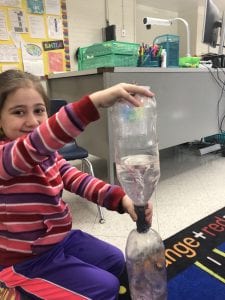
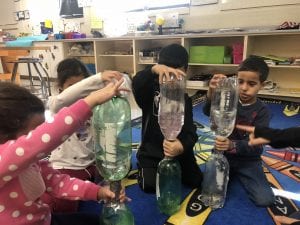
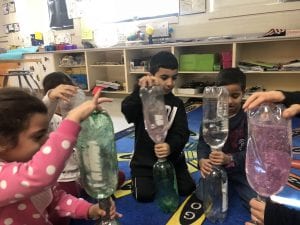
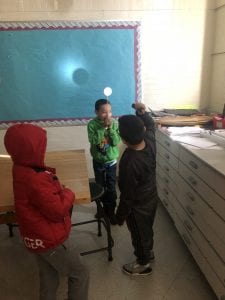
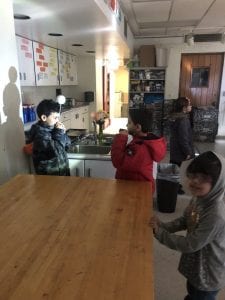
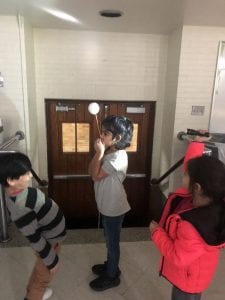
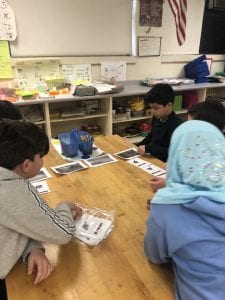
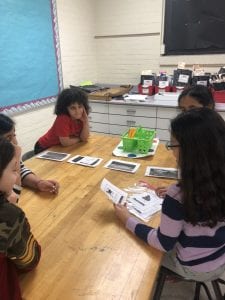
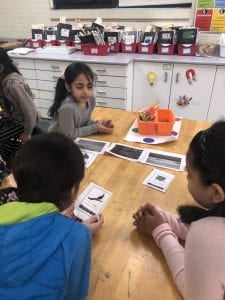
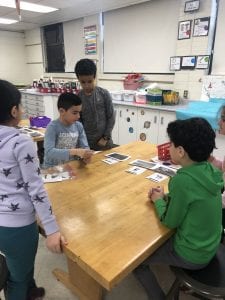
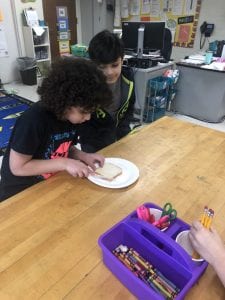
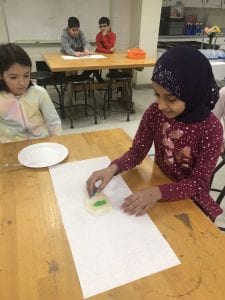
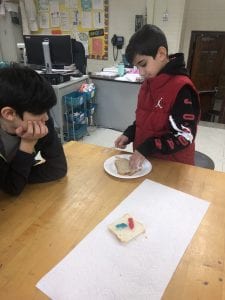
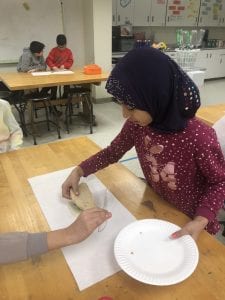
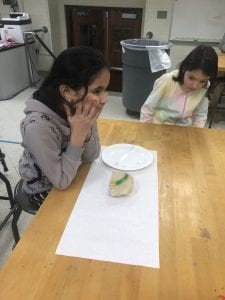
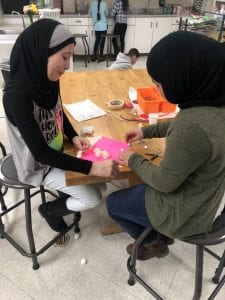
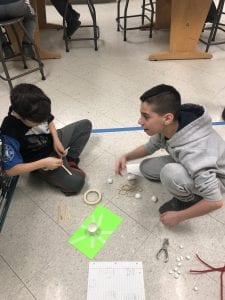
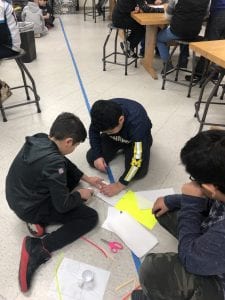
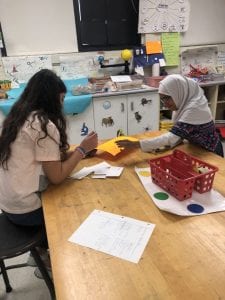
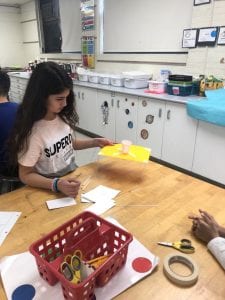
Leave a Reply